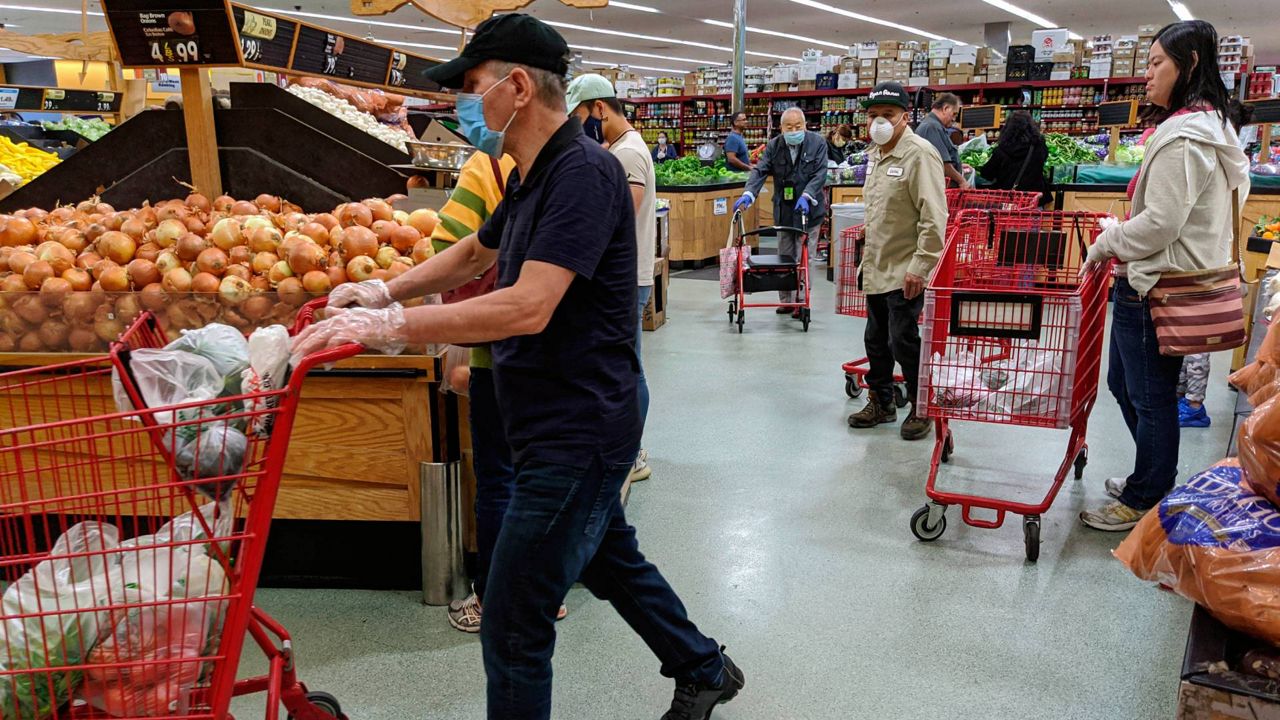LOS ANGELES (CNS) — Thousands of grocery workers across Southern California began voting Monday on whether to authorize their union to call a strike amid continued contract negotiations with the owners of stores including Ralphs and Vons/Pavilions/Albertsons.
What You Need To Know
- Roughly 47,000 workers represented by seven UFCW union locals between Central California and the Mexico border will be casting ballots
- Union officials announced earlier this month that contract talks had stalled
- A three-year-old labor contract between the unionized grocery workers and Southern California supermarkets expired March 7
- Grocery employees are continuing to work under the terms of the previous contract
Officials with the United Food and Commercial Workers union said votes will be cast over several days, with results expected to be announced Sunday. A "yes" vote would not automatically result in a strike. It would only authorize the union to call one if no progress is made in labor negotiations.
Roughly 47,000 workers represented by seven UFCW union locals between Central California and the Mexico border will be casting ballots. The membership covers workers at more than 500 stores.
Union officials announced earlier this month that contract talks had stalled. A three-year-old labor contract between the unionized grocery workers and Southern California supermarkets expired March 7, raising fears of a possible strike.
"Bargaining committees composed of front-line grocery workers and union leaders came prepared with proposals that would fairly increase wages and improve store conditions to reflect the needs of workers in a pandemic and post-pandemic world," the union said in a statement earlier this month announced a stall in labor talks. "The corporations representing the stores offered pennies, a proposal that would ultimately be a pay cut due to inflation."
Ralphs responded with a statement noting that "a strike authorization vote doesn't mean a strike will happen, but it does create unnecessary concern for our associates and communities, at a time when we should be coming together in good faith bargaining to find solutions and compromise. At Ralphs we remain focused on settling a deal with the UFCW."
"We have three very clear objectives; to put more money in our associates paychecks, keep groceries affordable for our customers and to maintain a sustainable future for our business," according to Ralphs. "By working together, we win together."
Grocery employees are continuing to work under the terms of the previous contract.
Ralphs issued a statement Sunday indicating additional negotiations were planned to resume March 30. According to the company, its latest proposal includes investments in wages of more than $141 million over the next three years, while not increasing healthcare costs for associates.
"We will continue to do everything we can to balance investments in wages and overall well-being of associates while keeping food affordable for our customers," Robert Branton, vice president of operations at Ralphs, said in the statement. "Our current offer adds to our associates' paychecks, while providing them with premium healthcare coverage and a company funded pension — which many of our competitors do not offer."
Ralphs says it pays an average hourly wage of $19 an hour, with more than half of associates having been with the company for more than 10 years, and more than one-third having been with Ralphs for more than 20 years. Ralphs also provides healthcare benefits and a pension for retired associates.
"Ralphs has always been and continues to be a workplace where our associates come for a job and stay for a career," Branton said.
Union officials said they are seeking a $5-per-hour wage hike, along with bolstered safety standards and "adequate scheduling and hours." According to the union, the grocery stores offered only a 60-cent-per-hour wage increase.
"Frontline grocery store workers continue to bear the brunt of the COVID pandemic and post-pandemic effects," according to the union. "More than 10,000 UFCW 770 employees have been infected with COVID, many more lost co-workers, friends and family members. Supermarket employees are overworked, underpaid and undervalued while grocery companies stack huge earnings — Kroger alone made $4 billion in profits in 2021."
In 2003-04, Southland grocery store workers walked off the job over a contract dispute, and the strike lasted 141 days. That work stoppage was estimated by some analysts to have cost the supermarket chains as much as $2 billion, with the workers losing $300 million in wages.
During the last round of negotiations in 2019, grocery workers voted to authorize a strike but negotiations continued for two months, and a labor deal was eventually reached, averting a walkout.



